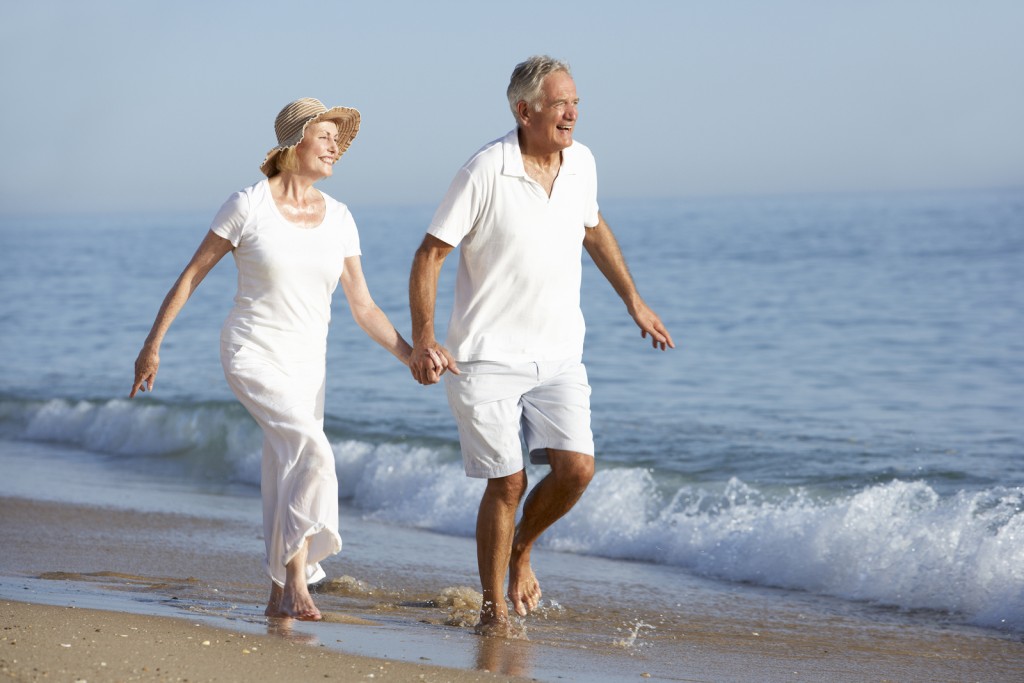 The sun can be brutal on skin, but when you’re a senior, it can be even more damaging, when skin is thinner and needs more protection than ever. No matter your age, protecting your skin from the harmful UV rays is important! The following tips can help you encourage sun safety, while ensuring that the skin is protected when the high, harsh sun rays are shining down.
The sun can be brutal on skin, but when you’re a senior, it can be even more damaging, when skin is thinner and needs more protection than ever. No matter your age, protecting your skin from the harmful UV rays is important! The following tips can help you encourage sun safety, while ensuring that the skin is protected when the high, harsh sun rays are shining down.
- Stay Hydrated – Make sure to stay hydrated while in the sun. This just does not go for seniors, it goes for anyone. When your body is well hydrated, the skin has more water, allowing sweat to help keep the body cool. Water helps the body adapt to any temperature changes. Keeping hydrated helps seniors protect their skin, and their health.
- Try to Stay Cool – If you must be in the sun, only do so for a short period of time. Seniors with health conditions have a harder time regulating their body temperatures, causing them to become much more dehydrated and sick than those that can adjust easily. Stay indoors, keep a fan with you or just take short walks.
- Wear the Right Clothing – Having too much clothing on, or dark colors can increase the chances of overheating while out in the sun. You want to deflect the sun’s rays by wearing loose fitting, light clothes and staying away from heavier items. At the same time, be careful when exposing the more sensitive areas that are typically covered up and more prone to getting sunburn, such as the shoulders and back.
- Use Sunscreen – You can protect your skin when you’re wearing sunscreen where the sun might hit and cause burns to happen. This can also help keep your body hydrated. Use a sunscreen with the proper SPF protection in it. Even if the sun is not that harsh on the skin, those that are elderly still need additional protection.
- Wear a Hat – Hats can help to protect the face and parts of the body from the sun when they are worn. Wearing a hat with a wide brim, and that is light and not heavy can help keep the senior cool and shaded from the sun.
- Know When to Stay Inside – You want to ensure that you’re not leaving the home when the temperatures are soaring, and the sun is at it’s highest peak in the day. You want to have minimal exposure to the harsh rays that can happen while in this part of the day. If it is too hot out, or the sun is too harsh; stay inside until later when it cools off and the sun starts to set.
Remember, sunburns and tans are signs that the skin has been damaged and is healing. Even those that are younger and have a tan or sunburn are showing signs of sun skin damage. Those that are older have to take extra precautions to protect themselves from the sun that might cause them additional harm. Protecting your skin can lessen your chances of increasing your risks for many health conditions, including skin cancer that comes from being in the sun, or direct rays of the sun for too long.